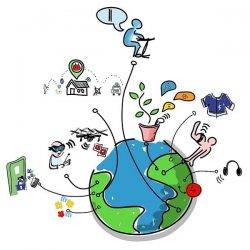To provide the best experiences, we use technologies like cookies to store and/or access device information. Consenting to these technologies will allow us to process data such as browsing behaviour or unique IDs on this site. Not consenting or withdrawing consent, may adversely affect certain features and functions.
The technical storage or access is strictly necessary for the legitimate purpose of enabling the use of a specific service explicitly requested by the subscriber or user, or for the sole purpose of carrying out the transmission of a communication over an electronic communications network.
The technical storage or access is necessary for the legitimate purpose of storing preferences that are not requested by the subscriber or user.
The technical storage or access that is used exclusively for statistical purposes.
The technical storage or access that is used exclusively for anonymous statistical purposes. Without a subpoena, voluntary compliance on the part of your Internet Service Provider, or additional records from a third party, information stored or retrieved for this purpose alone cannot usually be used to identify you.
The technical storage or access is required to create user profiles to send advertising, or to track the user on a website or across several websites for similar marketing purposes.
 Bureaucracy is holding UK workers back, with over half (51 percent). well over the global average, having ranked bureaucracy as a top five workplace issue, according to new research undertaken by Slack to reveal international perceptions of work. Morale however, is the number one work challenge, cited by more UK respondents (7 percent) than in any other European country. UK employees also consider hierarchy more a problem than their German counterparts (8 percent compared to 2 percent). More →
Bureaucracy is holding UK workers back, with over half (51 percent). well over the global average, having ranked bureaucracy as a top five workplace issue, according to new research undertaken by Slack to reveal international perceptions of work. Morale however, is the number one work challenge, cited by more UK respondents (7 percent) than in any other European country. UK employees also consider hierarchy more a problem than their German counterparts (8 percent compared to 2 percent). More →





 New research suggests as the supposed ‘technologically savvy’ millennials enter the workforce they are more likely than older workers to break the most basic of security rule, reusing passwords across different accounts. This is according to the results of the 10th Annual Market Pulse Survey from SailPoint Technologies Holdings, which finds that despite an increased focus on cybersecurity awareness in the workplace, employees’ poor cybersecurity habits are getting worse, which is compounded by the speed and complexity of the digital transformation.
New research suggests as the supposed ‘technologically savvy’ millennials enter the workforce they are more likely than older workers to break the most basic of security rule, reusing passwords across different accounts. This is according to the results of the 10th Annual Market Pulse Survey from SailPoint Technologies Holdings, which finds that despite an increased focus on cybersecurity awareness in the workplace, employees’ poor cybersecurity habits are getting worse, which is compounded by the speed and complexity of the digital transformation. 
 Over a quarter of businesses plan to hire temporary or contract staff in the next 12 months to help plug skills shortages created by digitalisation as more than half of CEOs are concerned about a lack of digital skills within their organisation. This is according to the Robert Half 2019 Salary Guide which argues that technology is reshaping businesses; with two in five UK organisations (38 percent) considering digitalisation as the main evolving force in the workplace today. This shift has created demand for a new set of skills, such as DevOps, data visualisation, data management and analytics. While softer skills such as resilience, adaptability and critical thinking remain key characteristics in potential employees, a third (31 percent) of employers state that a candidate’s technical skillset is their most important consideration when making a new hire. Around 1.6 million1 (28 percent) UK businesses plan to hire temporary or contract staff in the next twelve months, to combat the lack available talent required, which is creating a critical skills gaps in the workplace.
Over a quarter of businesses plan to hire temporary or contract staff in the next 12 months to help plug skills shortages created by digitalisation as more than half of CEOs are concerned about a lack of digital skills within their organisation. This is according to the Robert Half 2019 Salary Guide which argues that technology is reshaping businesses; with two in five UK organisations (38 percent) considering digitalisation as the main evolving force in the workplace today. This shift has created demand for a new set of skills, such as DevOps, data visualisation, data management and analytics. While softer skills such as resilience, adaptability and critical thinking remain key characteristics in potential employees, a third (31 percent) of employers state that a candidate’s technical skillset is their most important consideration when making a new hire. Around 1.6 million1 (28 percent) UK businesses plan to hire temporary or contract staff in the next twelve months, to combat the lack available talent required, which is creating a critical skills gaps in the workplace.


 Workers are increasingly introducing technology devices, software and other tools into the workplace without their employer’s approval, claims a new report from NextPlane that examines the extent of this growing rift and its impact on collaboration and productivity. Nearly half of professionals (46 percent) said they or their team have introduced new technology into their workplace, and despite IT attempts to remain in control, workers are not standing down, as 53 percent said they or another team have pushed back on IT or management when they tried to dictate the technology they use.
Workers are increasingly introducing technology devices, software and other tools into the workplace without their employer’s approval, claims a new report from NextPlane that examines the extent of this growing rift and its impact on collaboration and productivity. Nearly half of professionals (46 percent) said they or their team have introduced new technology into their workplace, and despite IT attempts to remain in control, workers are not standing down, as 53 percent said they or another team have pushed back on IT or management when they tried to dictate the technology they use.
 People and machines are entering a new era of learning in which artificial intelligence (AI) augments ordinary intelligence and helps people realise their full potential. But CIOs need to prepare workers for a future in which people do more creative and impactful work because they no longer have to perform many routine and repetitive tasks, according to analysts speaking at the
People and machines are entering a new era of learning in which artificial intelligence (AI) augments ordinary intelligence and helps people realise their full potential. But CIOs need to prepare workers for a future in which people do more creative and impactful work because they no longer have to perform many routine and repetitive tasks, according to analysts speaking at the 




 The rise of data and digitisation has led to the demise of the traditional working day for many CEOs, with a third now checking business analytics first thing in the morning and last thing before they go to bed. This peaks at 54 percent among 25-34 year olds but drops to just 5 percent for leaders over 45, who are much more fixed to their desk. According to the research by Domo (registration required), 80 percent of these leaders prefer to wait until they are in the office to check in. Three quarters (71 percent) of CEOs across the UK and Ireland believe their business could be at risk from current blind spots in data access and skills, however, there is another demographic split. 84 percent of CEOs age 25-34 said it could be a risk, compared to just half of over 55s.
The rise of data and digitisation has led to the demise of the traditional working day for many CEOs, with a third now checking business analytics first thing in the morning and last thing before they go to bed. This peaks at 54 percent among 25-34 year olds but drops to just 5 percent for leaders over 45, who are much more fixed to their desk. According to the research by Domo (registration required), 80 percent of these leaders prefer to wait until they are in the office to check in. Three quarters (71 percent) of CEOs across the UK and Ireland believe their business could be at risk from current blind spots in data access and skills, however, there is another demographic split. 84 percent of CEOs age 25-34 said it could be a risk, compared to just half of over 55s.


















November 7, 2018
Will technology prove a threat or a godsend in the new workplace?
by Matt Weston • Comment, Technology, Workplace
More →